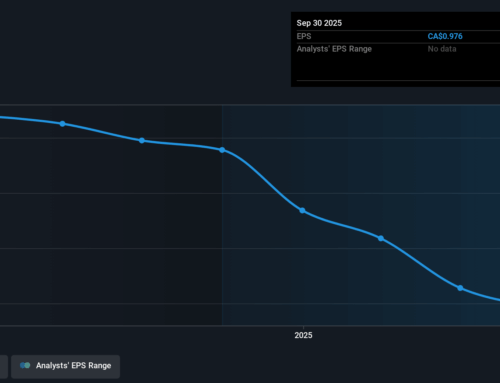Virginia’s 2025 Employment Laws: Background Checks, AI, And Cannabis
April 11, 2025
The 2025 General Assembly session in Virginia brought a wave of legislation impacting criminal record access, artificial intelligence in justice decisions, and cannabis policy—all of which carry implications for employers operating in the Commonwealth. In total, Governor Glenn Youngkin completed action on 916 bills, signing 599 into law, amending 159, and vetoing 157. While much attention focused on budgetary amendments and school modernization efforts, several measures stood out for background screening professionals and employers managing compliance risks.
Criminal History Access: HB 1627 Signed Into Law
House Bill 1627 imposes new limitations on access to criminal history record information (CHRI) maintained by the Central Criminal Records Exchange (CCRE), a repository managed by the Virginia State Police. The law amends Virginia Code §19.2-389 to restrict the dissemination of CCRE records to individuals and entities explicitly authorized by statute or regulation. Private employers who rely on CHRI sourced directly from the Virginia State Police or the CCRE must ensure they have a valid statutory or regulatory basis for doing so, as discretionary access is curtailed.
Importantly, this legislation does not impact access to criminal records obtained directly from courts of adjudication. Court records remain public and accessible unless otherwise sealed or expunged under separate legal authority. For employers and background screening companies, this signals a narrower gateway to centralized CHRI but leaves court-sourced data largely untouched.
Criminal Record Sealing Framework Overhauled: HB 2723 Enacted
Virginia’s long-awaited criminal record sealing framework—originally passed in 2021—received significant revisions under House Bill 2723, which was adopted with the Governor’s amendments and enacted as Chapter 671. The law delays implementation of Virginia’s new sealing process until July 1, 2026, giving state agencies, courts, and background screening stakeholders additional time to prepare for the transition.
Among the most notable changes is a new eligibility requirement: only offenses occurring on or after January 1, 1986 are eligible for sealing, a departure from the prior version that had no such offense date restriction. Additionally, the law now permits the sealing of certain “ancillary matters,” such as violations of probation and failure to appear charges, expanding relief to individuals whose records were previously disqualified due to related procedural convictions.
The bill also eliminates court filing fees for petitions to seal, helping reduce financial barriers to relief. While the scope of automatic sealing for low-level offenses remains largely intact, the legislation clarifies that deferred and dismissed charges will no longer be automatically sealed—they must now be sealed by petition. Conversely, a substantial number of offenses were newly excluded from eligibility, including those involving DUI, stalking, domestic violence, prostitution, and unauthorized surveillance, among others.
For employers, the sealing law reinforces the importance of relying on up-to-date, source-verified records. Beginning in 2026, certain criminal and traffic offenses will be sealed by court order or operation of law and removed from public access. These records will no longer be available for employment-related background checks. While most consumer reporting agencies query court records directly and do not maintain independent databases, those that do—referred to as “business screening services” under the law—will be required to register with the Virginia State Police to receive sealing notifications and must promptly delete sealed records. Employers should confirm that their screening partners are monitoring developments and aligning practices to ensure compliance with Virginia’s new sealing requirements.
Human Oversight in Criminal Justice AI: HB 1642 Adopted with Governor’s Amendment
HB 1642, adopted with amendments from Governor Youngkin, places meaningful guardrails on the use of artificial intelligence in Virginia’s criminal justice system. The law prohibits any decision regarding pretrial detention, prosecution, adjudication, sentencing, probation, parole, or correctional supervision from being made “without the involvement of a human decision-maker,” even if informed by an AI-based tool.
While the law does not apply directly to employment settings, it reflects Virginia’s regulatory trajectory—one that favors human oversight in AI-driven decision-making. This mirrors national trends emphasizing transparency and accountability in algorithmic systems. For employers, particularly those deploying predictive analytics or automated assessments, the message is clear: ensure human judgment remains central in high-stakes decisions.
Comprehensive High-Risk AI Framework: HB 2094 Vetoed
HB 2094, the High-Risk Artificial Intelligence Developer and Deployer Act, was the most sweeping AI regulation introduced this session—and also the most controversial. It would have imposed substantial documentation, impact assessments, and consumer disclosure obligations on developers and deployers of AI used in consequential decisions, such as hiring, housing, or access to healthcare.
Governor Youngkin vetoed the bill, calling it a “burdensome artificial intelligence regulatory framework” that could stifle innovation, especially among startups. “HB 2094’s rigid framework fails to account for the rapidly evolving and fast-moving nature of the AI industry,” Youngkin warned. He emphasized that existing laws already protect against discriminatory practices, and added that Virginia must remain a haven for tech investment—not a deterrent.
Despite the veto, the proposal’s passage in the General Assembly signals strong bipartisan interest in AI governance. Employers leveraging AI in hiring, performance management, or promotion decisions should monitor Virginia closely, as similar frameworks could return in future sessions or emerge through federal or multistate initiatives.
No Change to Recreational Marijuana: HB 2485 Vetoed Again
Virginia legalized adult recreational cannabis possession and limited home cultivation in 2021, but commercial sales remain stalled. HB 2485 aimed to establish a retail marketplace for marijuana. Governor Youngkin vetoed the bill, calling it a threat to public health and safety and warning that legalization has failed to eliminate black market activity in other states.
For employers, the veto means the current legal landscape remains unchanged. Recreational users have no employment protections under Virginia law. Only registered medical cannabis patients are protected from workplace discipline—and even then, protections do not extend to on-the-job impairment or conflict with federal law or safety-sensitive positions.
Employers should continue to review and update their drug testing policies, particularly as neighboring states advance their own cannabis reforms. Multistate employers must remain agile, balancing zero-tolerance policies with evolving legal protections for off-duty use.
Employer Takeaways
As Virginia positions itself as a tech and talent hub, lawmakers are walking a tightrope—balancing innovation with accountability. The state’s legislative session reflects both continuity and caution. The tightening of CHRI access signals a state interest in limiting broad, discretionary criminal background checks. The AI oversight bill, while focused on the justice system, underscores a preference for human accountability. The revised sealing law establishes a firm 2026 effective date and limits what employers and background screeners can access. And the continued veto of retail marijuana legislation maintains a uniquely complex legal environment: recreational cannabis is legal to possess, but not to buy, and employers retain broad discretion in workplace policy.
As lawmakers continue to wrestle with emerging technologies and evolving societal norms, employers in Virginia should closely monitor regulatory guidance and ensure alignment with federal and state law. For now, the message is clear: use criminal records carefully, keep humans in the loop when deploying AI, and tread carefully in the cannabis space.
Search
RECENT PRESS RELEASES
Related Post



